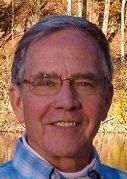Speaker urges students to find solutions, work for change
Published 12:00 am Thursday, July 17, 2014
The Center for the Environment at Catawba College began wrapping up its National Environmental Summit for High School students Friday with guest speaker Francis Koster.
The “Redesigning our Future” summit, a cooperative venture of the center and Rocky Mountain Institute of Colorado, is designed to help students gain valuable skills and knowledge that will help them become leaders who are equipped to start environmental initiatives and educate others.
Koster, author of “Discovering the New America: Where Local Communities are Solving National Problems,” gave students a boost at the end of a week of fun, hands-on experience and critical thinking by sharing stories of successful high school initiatives and giving pointers on how the teens could start their own.
One of the biggest mistakes that students make after identifying a sustainability issue, Koster said, is to try and invent a unique solution — it simply isn’t necessary. In the Information Age, with quick access to the Internet, it’s easy to look up a successful approach to any problem.
“You don’t need to invent stuff. A solution is out there; find it; modify it,” he said.
Koster listed several examples of successful student initiatives: a college freshman at Harvard who started making compost to provide the school with an alternative to toxic gardening chemicals; a group of students at a Massachusetts high school who began conducting energy audits in their building and saved their school $33,000 in energy bills; a Milwaukee teen who began testing pollution levels in the town’s water source, thereby providing the only pollution record for that body of water; a group of students in Pittsburgh who built drones to pinpoint natural gas leaks in the city; and a Concord, New Hampshire, school which, despite opposition, showed their administrators that 250 of the school’s 275 pounds of trash could be recycled.
Koster also gave the students tips to ensure their concerns are heard by people in positions of power. In order to start a movement, Koster told teens, you have to be able to grab someone’s attention first.
“It’s not just about the facts of the issue; it’s about how you communicate them,” he said.
He said that many people in environmental movements try to argue technicalities and statistics, and pointed out that this wasn’t a practical route — especially for high school students, who have yet to earn degrees or gain technical knowledge. Instead, it’s better for high schoolers to start a group movement, where everyone believes in the same goal.
Students can’t enforce sustainable practices through laws and mandates or walk into a political office and force an issue, he said, but a group pushing for a common goal is a different matter. “You can come in and say, ‘For the common good, this is not acceptable.’ ”
Koster encouraged students to use everything in their arsenal to fight for the things they believed in, including using symbols that evoke a strong emotional reaction and dressing professionally and using good communication skills — things that are often underutilized by students.
“Take advantage of anything you’ve got,” he said.
Koster left the teens with this thought, which he called the definition of growing up: “If you’re going to become the person you’re capable of being, you must first give up some of who you are.”
He said that, sometimes, students will have to give up privileges and accept responsibilities if they want to effect change.



